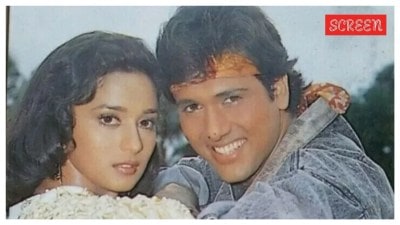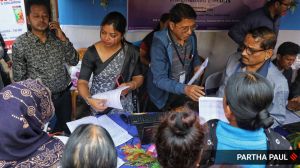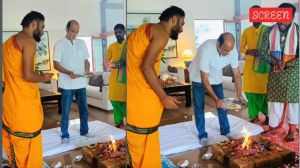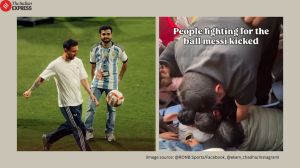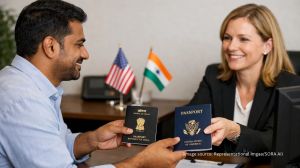The new guidelines under development by the National Medical Commission (NMC), to assess whether a candidate with disability may enrol in a medical course and whether candidates should receive the benefits of quota, are a mixed bag.
The recommendations of a 16-member expert panel range from a “progressive outlook” for those with mental illness — suggesting that anyone who can complete all course requirements be allowed to study medicine — to “extremely restrictive” requirements for locomotor disabilities, suggesting wheelchair-bound people or those using two crutches be disqualified.

The panel was set up after the Delhi High Court, earlier this year, directed the NMC to explore the possibility of candidates with disability pursuing some disciplines, if not all, of medical education.
Despite the mandate, much of the recommendations do not talk of advancements in assistive devices or treatments. Although some recommendations do make a mention of specific assistive devices such as cochlear implants for hearing impairment and telescopes and magnifiers for visual impairment, the existing guidelines say that anyone with more than 40% disability will be eligible for medical course and quota if their disability can be brought below the 40% mark with aids.
Inclusive recommendations
The two members from the Psychiatry Department reasoned that there was no threat to patient safety in allowing those with more than the “benchmark disability” due to mental illnesses, learning disabilities, or autism spectrum disorder because they would become doctors only if they are able to compete with their peers, clear MBBS, and complete the mandatory internship.
They reasoned that such screening and restriction at the time of admission is not useful since there is no mechanism to screen for the same disabilities if developed while pursuing the course, and while practicing medicine.
They also said that most people develop psychiatric conditions after the age of 18 years.
They also questioned the current guidelines on reservation for candidates with mental illnesses that say it is not recommended “due to lack of objective method to establish the presence and extent of mental illness”. The members said this statement contradicts the same guidelines because without this objective method how can those with “disability equal to or more than 40%” be disqualified from pursuing medical education.
Story continues below this ad
This is the reason the panel recommended that everyone should be allowed to pursue a medical course, and those with disability of more than 40% be allowed to compete for the 5% seats under the quota for persons with disabilities. These recommendations are in line with disability guidelines that are followed in countries such as the UK.
The strict guidelines
When it comes to locomotor disabilities — disability of bones, joints or muscles that restrict the movement of limbs — the committee suggested removing the 80% disability cap for those who are allowed to pursue medical education, without really doing away with it. It suggested that students will be allowed to pursue medical education if they are able to “perform activities and tasks involving sitting, standing, pulling, pushing, kneeling, crouching, lifting, bending, walking, and manipulation of fingers with dexterity.”
The guidelines also say that students dependent on wheelchairs and crutches will not be allowed to pursue medical education.
Story continues below this ad
Dr Satendra Singh, who made the committee report available through RTI and is a polio-stricken doctor who uses a crutch, said: “Although students were asked to do such tasks with and without assistive devices during their medical assessment for MBBS admission and were rejected sometimes based on it, activities like kneeling or crouching were never written down as part of any guideline. Why does someone who needs to offer consultations at a clinic need to kneel or crouch?”
Dr Pankaj Jain of the Orthopaedics Department at SMS, Jaipur, who was one of the two doctors who gave these recommendations, said: “Jaipur foot is well known to provide mobility enough to allow someone to dance, but would you allow such a person in the Army? What if there is an attack at night? Can they excuse themselves saying they could not fight because they did not have their leg on…”
He said, “Of course, if someone acquires a disability when they are already a practicing doctor, we should make accommodations to ensure they can continue to use their skills. But why do it before the race even begins? This is a disadvantage to others. People with severe disabilities would be more suited to other professions.”




